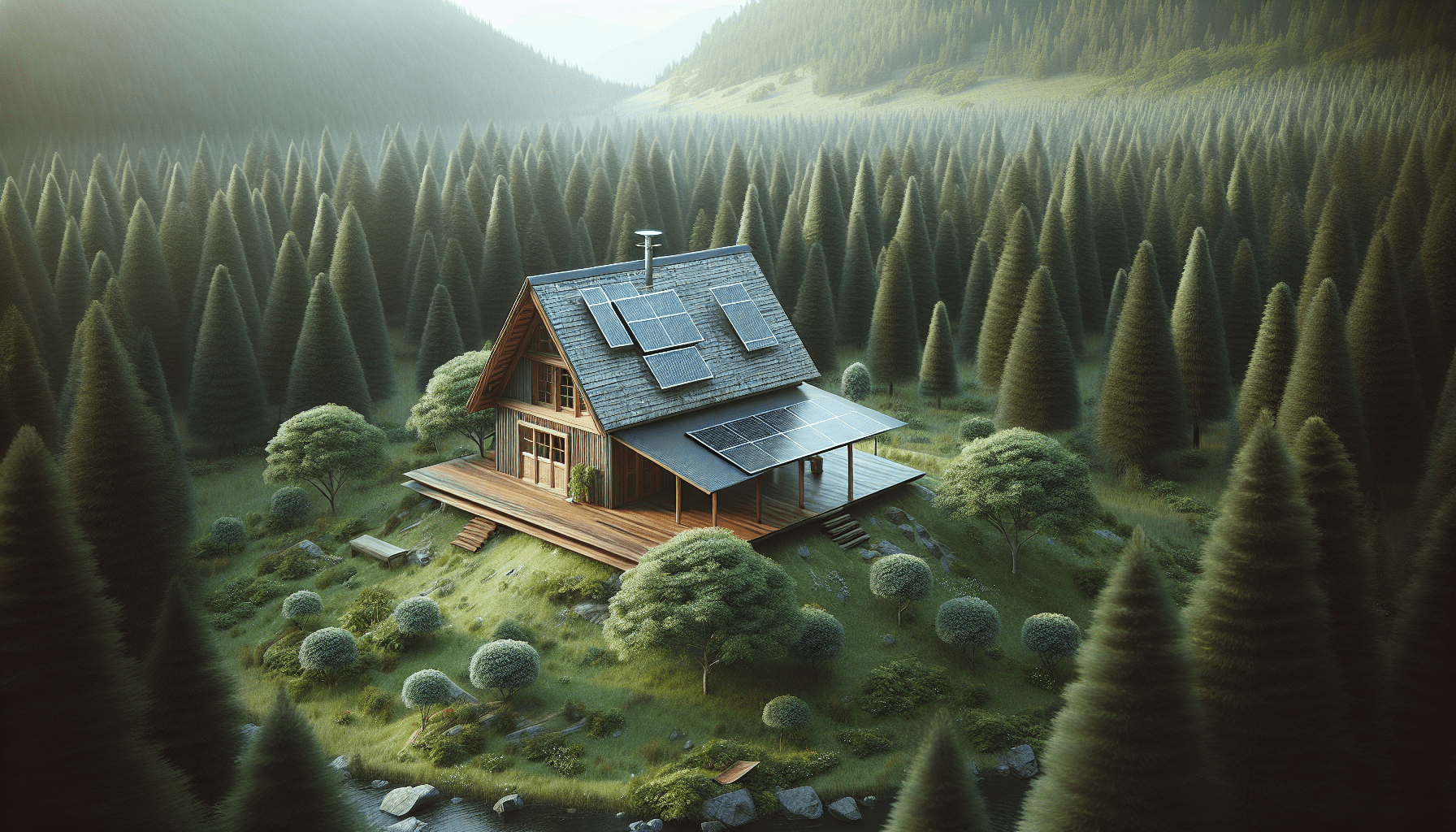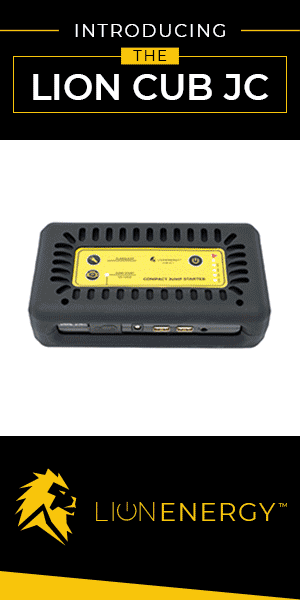Introduction
Are you looking for a reliable, cost-effective, and eco-friendly power solution for your cabin? Whether you’re living off-grid full-time or need a backup power source for weekend getaways, solar power solutions for cabins offer the perfect way to generate electricity without relying on noisy generators or expensive fuel.
With advancements in solar technology, you can now power everything from lights and appliances to heating and cooling systems, ensuring a comfortable and self-sufficient experience. In this comprehensive guide, we’ll walk you through the best solar panel types, battery storage options, installation tips, and cost-saving strategies to help you make the best choice for your off-grid cabin.
Why Solar Power is the Best Choice for Cabins
Before diving into the details of solar power solutions for cabins, let’s explore why solar energy is the best choice for your off-grid retreat.
1. Energy Independence
One of the biggest advantages of solar power is energy independence. You won’t have to rely on utility grids, deal with power outages, or spend money on fuel-powered generators. Once installed, solar panels provide free, renewable energy with minimal maintenance.
2. Significant Cost Savings
Although the initial investment in solar panels and batteries can be high, they quickly pay for themselves. No more monthly electricity bills or the hassle of buying, transporting, and storing fuel for a generator. Plus, with solar incentives and tax credits, you can reduce upfront costs significantly.
3. Environmentally Friendly Energy
Traditional generators burn gasoline or propane, producing harmful emissions. Solar power, on the other hand, is completely clean and sustainable, allowing you to enjoy nature without harming it.
4. Quiet and Low-Maintenance
Unlike generators that create constant noise, solar panels operate silently. Once installed, they require little maintenance—just occasional cleaning and ensuring batteries are in good condition.
Best Solar Power Solutions for Cabins
When setting up a solar power system for a cabin, you need several key components, including:
✔️ Solar panels to capture energy
✔️ A battery bank to store excess power
✔️ An inverter to convert DC electricity to usable AC power
✔️ A charge controller to regulate power flow
Let’s break down each part in detail.
1. Choosing the Right Solar Panels for Your Cabin
Solar panels are the heart of your system. Picking the right type ensures maximum energy efficiency and optimal performance in off-grid conditions.
Types of Solar Panels
1️⃣ Monocrystalline Solar Panels – Highly efficient, space-saving, and long-lasting. Best for cabins with limited roof space.
2️⃣ Polycrystalline Solar Panels – More affordable but slightly less efficient than monocrystalline panels. Ideal for those on a budget with plenty of mounting space.
3️⃣ Thin-Film Solar Panels – Lightweight and flexible but lower in efficiency. Suitable for portable applications or areas with fluctuating sun exposure.
Portable vs. Fixed Solar Panels
- Fixed Panels – Installed permanently on the roof or ground, providing a stable and continuous power supply. Best for year-round cabins.
- Portable Panels – Foldable and lightweight, allowing you to set them up only when needed. Great for seasonal or temporary use.
✅ Recommendation: If you plan to use your cabin frequently, a fixed monocrystalline system is best. If you only visit occasionally, a portable solar generator with foldable panels might be a better choice.
2. Solar Battery Storage: Ensuring Power Anytime
Since solar panels only generate power when the sun is shining, a solar battery is essential for storing energy for nighttime and cloudy days.
Best Solar Batteries for Cabins
🔋 Lithium-Ion Batteries – Highly efficient, longer lifespan, and faster charging. Best for full-time cabins.
🔋 Lead-Acid Batteries – More affordable but require frequent maintenance and have a shorter lifespan. Good for budget-conscious setups.
🔋 Saltwater Batteries – A newer, eco-friendly option that’s safe and durable, though not as widely available.
✅ Recommendation: If your cabin requires reliable, long-term power, go for lithium-ion batteries. If you want a cheaper alternative for occasional use, lead-acid batteries work well.
3. The Role of Solar Charge Controllers
A solar charge controller manages power flow between the solar panels and battery bank, preventing overcharging or power drain.
There are two main types:
- MPPT (Maximum Power Point Tracking) Controllers – Higher efficiency, ideal for larger solar systems.
- PWM (Pulse Width Modulation) Controllers – More affordable, suitable for small cabins with lower power needs.
✅ Recommendation: MPPT controllers are better for maximizing solar efficiency, especially if you have a larger battery bank.
4. Inverters: Converting Solar Power for Appliances
Most home appliances run on AC (Alternating Current) power, but solar panels produce DC (Direct Current) power. An inverter converts DC power into usable AC electricity.
Types of Inverters for Solar Systems
✔️ Pure Sine Wave Inverters – Best for sensitive electronics like laptops and medical devices.
✔️ Modified Sine Wave Inverters – Cheaper but can cause issues with some appliances.
✅ Recommendation: For cabins with modern appliances and sensitive electronics, use a pure sine wave inverter for smooth, efficient operation.

How to Determine Your Cabin’s Solar Power Needs
To set up an efficient system, calculate your cabin’s energy usage:
1️⃣ List all appliances and their power ratings (Watt-hours per day).
2️⃣ Add up total energy consumption per day.
3️⃣ Select a battery storage size to cover nighttime and cloudy days.
4️⃣ Choose the right number of solar panels based on daily energy consumption and sun exposure.
Example Calculation:
- Lights (10W x 5 hours) = 50Wh
- Refrigerator (150W x 8 hours) = 1200Wh
- Laptop (60W x 3 hours) = 180Wh
- Total Daily Consumption = 1,430Wh (1.43 kWh)
If you receive 5 peak sun hours per day, a 300W solar panel will generate 1.5 kWh/day, covering this demand.
Recommended Off-Grid Solar Kits for Cabins
🔹 Renogy 400W Solar Kit – Includes panels, charge controller, and cables; ideal for small cabins.
🔹 Jackery Solar Generator 2000 Pro – Portable power station with solar panels; great for occasional cabin use.
🔹 Bluetti AC200P Solar Kit – High-capacity battery, great for medium-sized cabins.
FAQs
1. Can a solar power system run my entire cabin?
Yes! With the right solar panel capacity, battery storage, and inverter, you can power everything from lights and refrigerators to heating and cooling systems. The key is calculating your energy needs and choosing a system that can handle your usage.
2. How much solar power do I need for my cabin?
The amount of solar power you need depends on your appliance usage. A small cabin may require 400W-600W, while a larger, fully equipped cabin could need 1,500W or more. Here’s a quick formula:
1️⃣ List all appliances and their power usage (Watts).
2️⃣ Multiply each by daily hours of use (Watt-hours per day).
3️⃣ Add up the total to determine your solar panel and battery requirements.
Example:
- Lights (10W x 5 hrs) = 50Wh
- Refrigerator (150W x 8 hrs) = 1200Wh
- Laptop (60W x 3 hrs) = 180Wh
- Total Daily Consumption = 1,430Wh (or 1.43 kWh)
If your area gets 5 peak sun hours per day, a 300W solar panel would generate 1.5 kWh/day, covering your needs.
3. What’s the best type of solar panel for cabins?
There are three main types of solar panels:
✅ Monocrystalline Solar Panels – Best efficiency, long lifespan, ideal for small spaces.
✅ Polycrystalline Solar Panels – Budget-friendly but slightly less efficient.
✅ Thin-Film Solar Panels – Lightweight, portable, but lower efficiency.
For most off-grid cabins, monocrystalline panels provide the best long-term value.
4. What kind of battery do I need for solar power storage?
Solar batteries store extra power for use at night or on cloudy days. The best options for cabins include:
🔋 Lithium-Ion Batteries – Longer lifespan, higher efficiency, faster charging (best for full-time cabins).
🔋 Lead-Acid Batteries – Lower cost but require maintenance (good for budget-conscious setups).
🔋 Saltwater Batteries – Eco-friendly, but less common.
✅ Recommendation: Lithium-ion batteries offer the best performance, while lead-acid batteries work for lower-cost setups.
5. Can I install solar panels on my cabin myself?
Yes! Many solar panel kits are designed for DIY installation and include easy-to-follow instructions. However, for larger systems, it may be best to hire a professional to ensure safety and efficiency.
6. How much does a solar power system for a cabin cost?
The cost depends on system size and battery storage:
💰 Basic small system (400W-600W, no batteries) – $1,500-$3,000
💰 Mid-size system (1,000W-2,000W, battery storage) – $4,000-$8,000
💰 Large full-home system (3,000W+ with full battery backup) – $10,000+
Pro Tip: Check for solar tax credits and rebates in your area to reduce costs.
7. Do I need an inverter for my cabin’s solar system?
Yes, if you plan to power AC appliances (like lights, refrigerators, or TVs). Solar panels generate DC (Direct Current), and an inverter converts it to AC (Alternating Current) for use.
🔹 Pure Sine Wave Inverters – Best for sensitive electronics and efficient performance.
🔹 Modified Sine Wave Inverters – Cheaper but may cause issues with some appliances.
✅ Recommendation: A pure sine wave inverter is the best choice for a reliable power supply.
8. What happens on cloudy days or at night?
On cloudy days, solar panels generate less power, but your battery bank stores extra energy to use when the sun isn’t shining. To avoid power shortages:
✔️ Choose a battery with enough storage for 2-3 days of energy needs.
✔️ Consider a backup generator for emergencies.
9. Are solar power systems for cabins high maintenance?
No! Solar panels require minimal maintenance. You only need to:
✔️ Clean the panels every few months (removing dust, leaves, and snow).
✔️ Check battery health (especially if using lead-acid batteries).
✔️ Inspect wiring & connections periodically.
10. Can I use a portable solar power system for my cabin?
Yes! If you only visit your cabin occasionally, a portable solar generator with foldable solar panels is a great option. Some top choices include:
🔹 Jackery Solar Generator 2000 Pro – Great for temporary cabin stays.
🔹 Bluetti AC200P Solar Kit – High-capacity portable power.
🔹 EcoFlow Delta Pro – Powerful, expandable battery system.
If you stay in your cabin year-round, a permanent solar panel system with batteries is the best option.

Final Thoughts: Power Your Cabin with Solar Energy
Switching to solar power solutions for cabins is a smart, sustainable choice for energy independence. Whether you need a small backup system or a full off-grid setup, solar energy provides a reliable, long-term power solution.
🔹 Ready to start? Calculate your power needs and choose the best solar system for your cabin today!
Disclosure: As an Amazon Associate, I earn from qualifying purchases.


